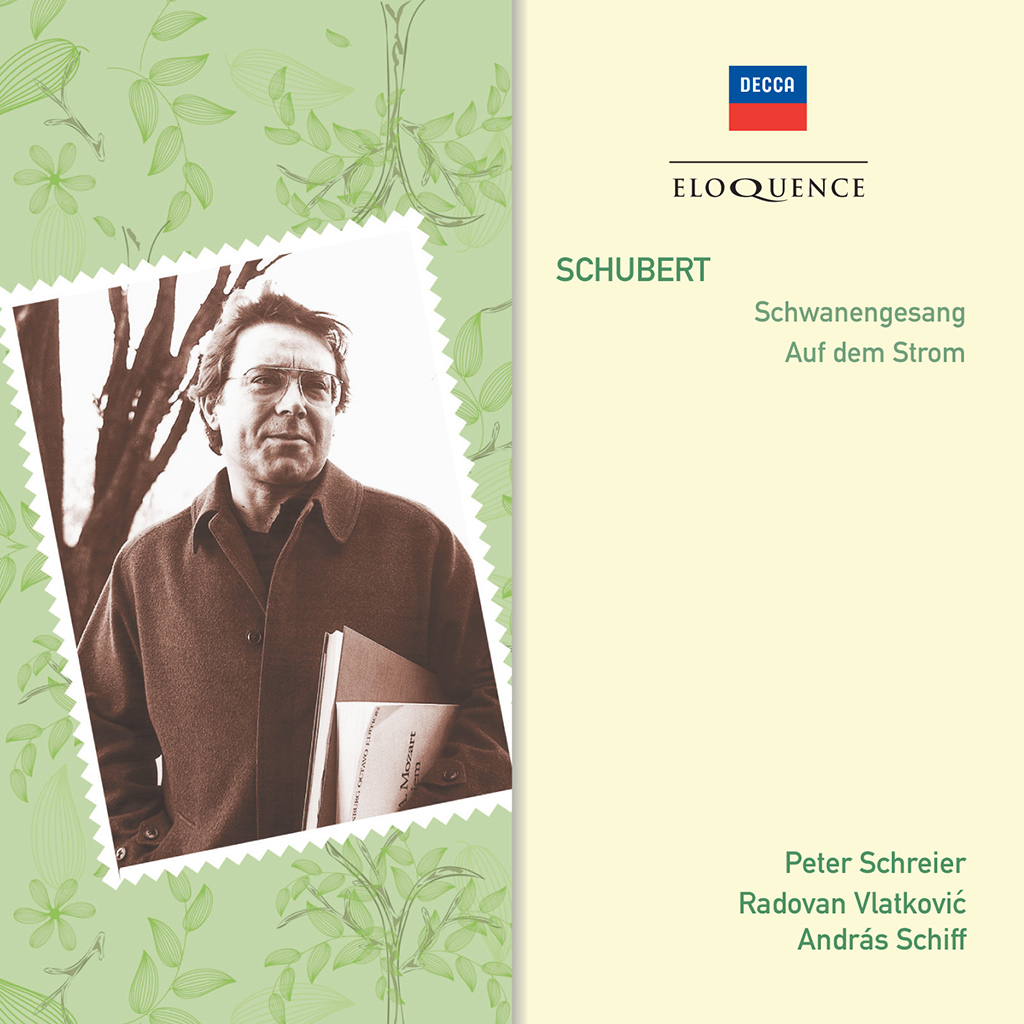
The eighteen songs included in this recording of Schwanengesang all belong to the last three years of Schubert’s life. The earliest of them, Am Fenster, was written in March 1826, while the last, Die Taubenpost, was finished only a few weeks before his death on 19 November 1828. Fourteen of them, seven by Ludwig Rellstab, six by Heinrich Heine and one by the Vienna government official and journalist, J.G. Seidl, were published by Tobias Haslinger in May 1829 under the umbrella title Schwanengesang (‘Swan Song’) and are often performed as a complete cycle. Of these, Am Fenster, Der Wanderer an den Mond (both Seidl) and Herbst (Rellstab), were not included in the original publication of Schwanengesang.
Auf dem Strom, with obbligato horn, dates from the previous year, 1827, but was first performed on 26 March 1828, marking the first anniversary of Beethoven’s death. The horn plays a significant melodic role in the setting, opening the piece, providing interludes between the verses, and duetting with the solo tenor voice. It was recorded in 1991 by Peter Schreier and András Schiff, with Radovan Vlatković, at the Decca Winterreise sessions, but owing to the playing time of the CD, Auf dem Strom did not appear. This is the recording’s first release.
FRANZ SCHUBERT
Schwanengesang
Auf dem Strom, D.943*
Peter Schreier, tenor
Radovan Vlatković, horn
András Schiff, piano
* PREVIOUSLY UNPUBLISHED
Recording Producer: Christopher Raeburn
Balance Engineers: Simon Eadon (Schwanengesang); Stanley Goodall (Auf dem Strom)
Recording Location: Mozart Saal, Konzerthaus, Vienna, Austria, August 1988 (Schwanengesang), August 1991 (Auf dem Strom)
‘This is a wonderful disc by any standard. Indeed, the partnership of Schreier and Schiff [is] a masterstroke of Decca … [Schreier’s] performances of the Heine settings … have become so anguished as to expose every nerve end in their depiction of lost love, and Schiff’s realisation of the piano’s role seconds the singer’s probings perfectly. […] This is really a “must” for any Lieder collection.’ Gramophone
‘One of the most compelling recordings ever of Schwanengesang … The recording is vividly real.’ *** Penguin Guide to Compact Discs
